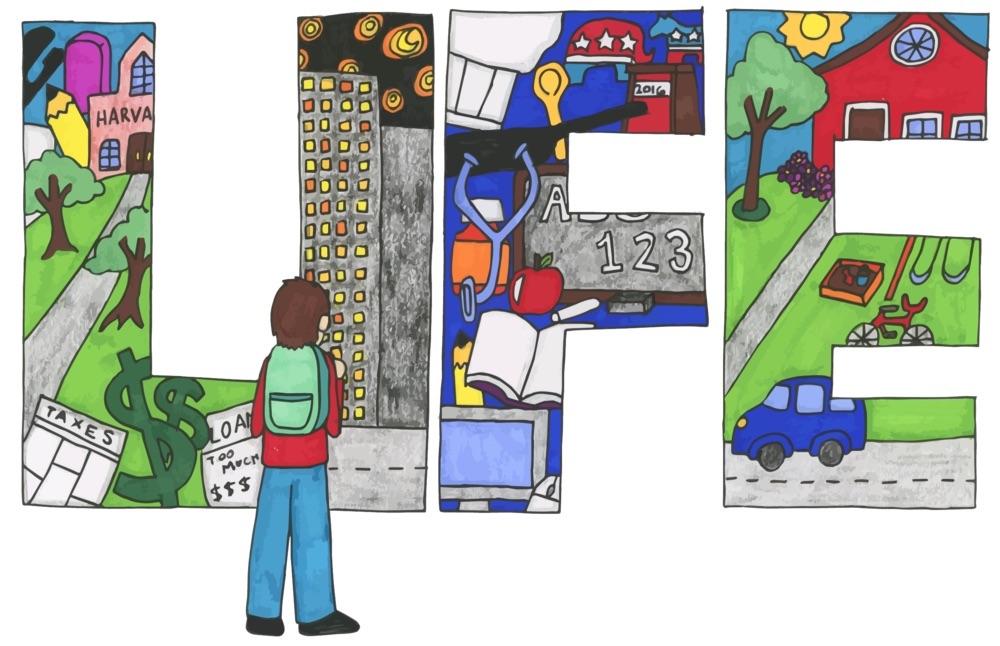I have written many articles over the past few years regarding self-confidence, self-respect and standing up for oneself. Most recently, I wrote an article about how harassment and crime is handled at Whitworth and an explanation of Federal Laws for students to know their rights.
When writing any of these articles, I never once thought that I would be the victim of anything more than a lack of self-confidence. I never had an issue with being silent about anything that bothered me or affected me directly. My words were my shield and my sword — with them I was not silent and I was not alone.
As a journalism major with a deep interest in law, I wanted to talk to someone who has experienced or was a victim of harassment or crime at Whitworth, but I could never get a student to talk to me about it. I had a firm belief that there were students who had experienced this and the silence overwhelmed me. And I never understood why — that is, until I became a victim of it myself.
Since I am a junior and of legal drinking age, I like to participate in the usual traditions for a 20-something — go out to a party with some friends and have a good time. I have heard all sorts of stories about college parties — that people get too rowdy, too carried away, and sometimes, to the extent of crime. I never expected that to happen at a party with Whitworth students.
There’s an image that’s portrayed of Whitworth students — that they’re good, high achieving, generally Christian students. We can leave our backpacks unattended in the HUB; leave our expensive smartphones and keys on tables in the cafeteria. The same philosophy followed me to off-campus parties. We’re all Whitworth students, we can trust each other, right?
A group of friends and I went to a house party thrown by Whitworth students — typical for a Saturday night, armed with a few Smirnoff Ices and Budweisers each, aiming for a low-key night. I went through my drinks over a few hours, and I was just slightly tipsy. Not even close to drunk, and that’s how I wanted to be that night.
A few friends and I went outside to talk to incoming guests and share a cigarette. We were outside for about a half hour.
And that’s all that I remember.
I woke up the next day in my bed, wearing the clothes from the previous night, makeup smeared all over my face. My friends were sleeping on the floor. They told me they found me passed out in the house and had to carry me to the car and back home, that I kept saying that somebody hurt me and to call the police. My jeans were dirty, I had bruises all over my body, my shirt dirty and lopsided. That’s when the panic set in.
Student Life investigated the case, interviewing everyone involved and trying to fit the pieces of the puzzle together; pieces that I couldn’t remember. I eventually found out that I was sexually assaulted. I was passed around to various faculty and counselors and I recounted all that I knew — only what my friends told me. I did not, and still do not, remember a thing beyond standing on the porch that night.
I had never felt so much guilt in my life. I was ashamed of myself and I blamed myself for all that had happened. I thought if I didn’t drink that night, if I stayed inside with my other friends, none of this would have happened. I didn’t ask for it — I wasn’t being provocative. I felt guilt that my friends were getting interviewed and interrogated and that they had to waste any of their time on this. I spent days debating if I should get a rape kit at the hospital. If I didn’t remember anything, how could I press charges, I thought.
Days became weeks, and I buried myself in work to forget about it. Eventually, Student Life closed the case since I did not ask them to press charges. All I could bring myself to agree to was a restraining order — even though I don’t even remember his face. I finally broke, and I had to write about my experience.
It took me a long time to come to terms with what happened. I fight with fear, guilt and shame every day. I’ve let my anger turn into words, and if there is one good thing to come out of this, it will be letting someone else know that they are not alone. No one asks to be violated; to feel burdened with guilt, shame and fear. No one should be labeled a victim. No matter what you may have experienced, whether you have words or friends — you are not alone.
Contact Shelby Harding at sharding15@my.whitworth.edu







